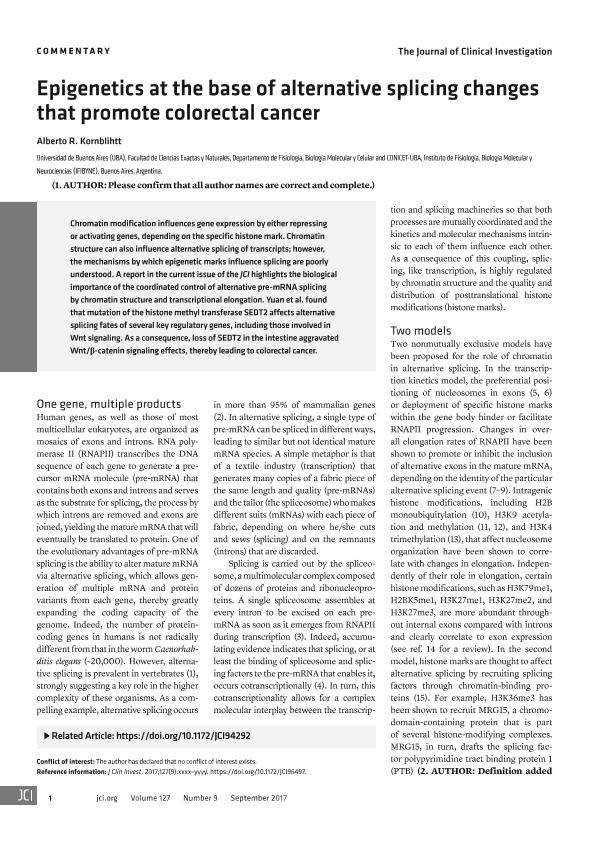Artículo
Epigenetics at the base of alternative splicing changes that promote colorectal cancer
Fecha de publicación:
08/2017
Editorial:
American Society for Clinical Investigation
Revista:
Journal of Clinical Investigation
ISSN:
0021-9738
Idioma:
Inglés
Tipo de recurso:
Artículo publicado
Clasificación temática:
Resumen
Chromatin modification influences gene expression by either repressingor activating genes, depending on the specific histone mark. Chromatin structure can also influence alternative splicing of transcripts; however, the mechanisms by which epigenetic marks influence splicing are poorly understood. A report in the current issue of the JCI highlights the biological importance of the coordinated control of alternative pre-mRNA splicingby chromatin structure and transcriptional elongation. Yuan et al. found that mutation of the histone methyl transferase SEDT2 affects alternative splicing fates of several key regulatory genes, including those involved in Wnt signaling. As a consequence, loss of SEDT2 in the intestine aggravated Wnt/β-catenin signaling effects, thereby leading to colorectal cancer.
Palabras clave:
Epigenética
,
Splicing Alternativo
,
Cáncer Colorectal
Archivos asociados
Licencia
Identificadores
Colecciones
Articulos(IFIBYNE)
Articulos de INST.DE FISIOL., BIOL.MOLECULAR Y NEUROCIENCIAS
Articulos de INST.DE FISIOL., BIOL.MOLECULAR Y NEUROCIENCIAS
Citación
Kornblihtt, Alberto Rodolfo; Epigenetics at the base of alternative splicing changes that promote colorectal cancer; American Society for Clinical Investigation; Journal of Clinical Investigation; 127; 9; 8-2017; 3281-3283
Compartir
Altmétricas




